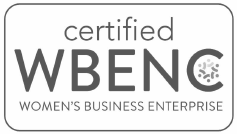These are the times when outside expertise makes all the difference
If a brand truly wants to unpack an issue — like who’s buying their products or what their industry will look like in five years — it requires commitment and investments. Meaningful research takes advanced tools, access to data, and people who can make sense of that data.
In some cases, a brand can conduct research themselves. If you’re interested in what one single competitor is doing, or how one of your social media channels has performed over the past six months, you can likely do that in-house.
But for bigger projects, a bigger investment is worthwhile: brands should commission an independent expert. Otherwise, you’ll waste time and money, and return inconclusive results.
Here are three times when commissioning third-party research is essential:
When launching a new business
Perhaps you’re an entrepreneur with a bright idea for a health care start-up. Or, maybe you’re a technologist with a great concept for a social media platform. In either case, you have a specific expertise, but not a full understanding of your potential customers.
Any new venture should commission research into buyer personas from the get-go. This research entails determining who your customers are: their location, their age, their interests, their income, their behavior, and their motivations. “In order to get a full understanding of what makes your best customers tick, it’s critical to develop detailed personas for your business,” explains Hubspot.
Building buyer personas requires time and talent: focus groups, interviews, and combing through market data. It also requires a knack for pulling trends out of social media chatter: “The consumer conversations on and around social media, news, blogs, forums, and reviews provide valuable insights into the affinities of specific audiences,” notes the Social Media Examiner.
This is fundamental data that will shape your business going forward, and so shouldn’t be left to an amateur researcher. With this data properly in hand, a new company is on a pathway to success; without it, they’ll almost certainly flounder.
When adding a new product
This scenario is similar to the first. But many brands may assume their success with one product will translate to the next. It won’t. Even if you’re launching something similar — say, a marketing firm opening an office in a new city, or a software company introducing a new tool to your suite — there are variables and unknowns. You need to know the history of the space, who the competition is, and what sets you apart.
“Like any other business initiative, a product launch takes time and careful planning – rushing to market without having your ducks in a row is a recipe for disaster,” explains Forbes.
In an article titled “How to Do Market Research: A 6-Step Guide,” Hubspot breaks down what quality market research entails. It’s comprised of many stages, from interviewing current customers to becoming an expert on your competitors. Forbes offers a list, too, and it’s just as comprehensive: brands must define a target audience, determine their needs, and figure out how to reach them — no small task.
When presenting an industry trend or analysis
Making a bold statement can be a powerful PR move. Imagine: You’re an insurance company saying you offer the best prices and coverage. Or, you’re a software customer saying your product makes customers more productive than competitors’ products.
These claims fall apart, though, without objective data to back them up. If you’re claim is only supported by in-house research, you’ll appear biased and lose major credibility. Customers will be rightly skeptical and, very quickly, you’ll find that your PR move backfired.
There are other reasons to use a third-party here, too. They offer an outside perspective, access to more advanced polling tools, and free you up to focus on what you do best, explains research firm Drive Research.
Some things are best left to the experts, and research is among them. If you’re a brand looking to gain a deeper understanding of your audience, your products, or your competitors, engage an expert.


